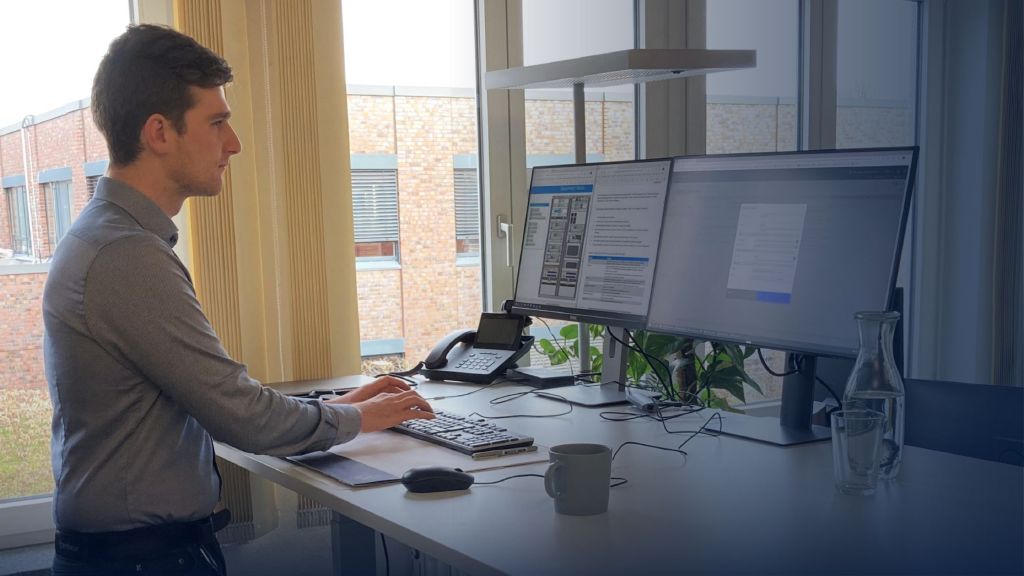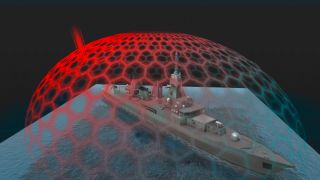Wednesday: The importance of standards
Today, Raphael has one thing on his agenda above all else: Deep diving into standards and guidelines that are demanded by the client and legislator. They contain specifications that have an influence on the technical implementation, but also on the processes to be used. For example, transmission protocols, functions, but also more abstract properties are required. Raphael keeps track of this, too: "I read a lot, ask publishing organizations if necessary, and support colleagues in efficient implementation." Staying up to date on standards is important for working with customers and finding the optimal solution. At least as important: to continue training on a regular basis. "The fact that you are always supported in your training efforts is something I particularly appreciate at Rohde & Schwarz. But I can also learn from my expert colleagues every day - knowledge is always shared in my team," Raphael is happy to say.
Thursday: Requirements engineering as a central task
The most important item on the agenda this Thursday is a follow-up meeting with two other specialists who are to evaluate the customer's change requests from a cross-subsystem perspective. The meeting is informative and Raphael now knows: a cable diameter must be adjusted. But what he also knows: this adjustment will violate one of the requirements specified by the customer. "In such a case, it's my job to convince the customer that the function and performance he originally wanted can be achieved without this requirement," says Raphael. The fact that the customer and the client do not always agree on the implementation of systems is a regular occurrence, and so it is part of the daily routine of a systems engineer to examine the facts in detail as part of requirements engineering and to be able to substantiate recommendations with valid arguments.











